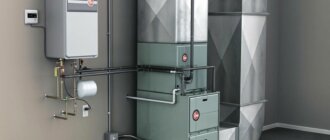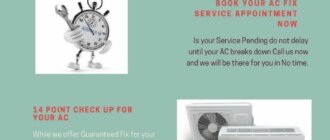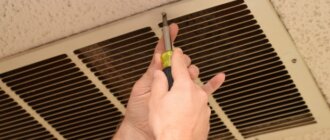Air Filter Replacement
Are you looking to improve the air quality in your home and ensure efficient performance of your HVAC system? Look no further than regular air filter replacement. Air filters are a vital component of any HVAC system, working tirelessly to keep the air in your home clean and free from pollutants. However, many homeowners overlook the importance of replacing their air filters regularly. In this blog post, we’ll explore what an air filter is, how it works, why regular replacement is crucial for maintaining air quality and ensuring efficient HVAC performance, and provide a step-by-step guide on how to replace them yourself. So buckle up, as we dive into everything you need to know about air filter replacement!
What is an Air Filter?
An air filter is a device that removes harmful particles from the air in your home or workplace. It’s an essential component of HVAC systems, which stands for heating, ventilation, and air conditioning. An HVAC system circulates warm or cold air throughout your space to ensure comfortable temperatures year-round.
The primary job of an air filter is to trap contaminants such as dust, dirt, pollen, pet dander and mold spores from the circulated air. These pollutants can cause health issues like allergies and respiratory problems if they’re not filtered out properly.
Air filters come in various types with different levels of efficiency based on their Minimum Efficiency Reporting Value (MERV) rating. The higher the MERV rating, the more efficient it is at trapping airborne particles but may also restrict airflow.
Having a good-quality air filter installed in your HVAC system can improve indoor air quality by reducing harmful particles in the circulating air. Regular replacement ensures optimal performance and prolongs the lifespan of your HVAC unit.
How Does an Air Filter Work?
An air filter is an essential component of your HVAC system that ensures clean and healthy indoor air quality. But how does it actually work?
Air filters are designed to trap harmful particles such as dust, pollen, pet dander, and even bacteria and viruses from the air circulating in your home or workplace. The filter consists of a dense mesh material that captures these contaminants.
As the air flows through the filter, it passes through this mesh material which traps small particles while allowing cleaner air to pass through. Over time though, as more particles get trapped in the filter, its ability to capture new pollutants decreases.
Eventually, once a certain saturation point is reached where enough debris has been caught by the filter rendering it less effective at capturing further particulates in circulation. This means that regular replacement of your air filters will help maintain good indoor filtration efficiency for optimal health benefits.
By understanding how an air filter works, you can appreciate its importance when it comes to ensuring efficient HVAC performance while maintaining a healthy indoor environment for all occupants on a daily basis.
The Importance of Regular Air Filter Replacement
Regular air filter replacement is crucial to maintain the quality of indoor air and ensure efficient HVAC performance. The job of an air filter is to trap airborne particles like dust, dirt, pollen, pet dander and other pollutants that can harm our health and affect the lifespan of your HVAC system. Over time, these particles accumulate in the filters and cause it to clog up.
A clogged air filter would restrict airflow which puts a strain on your HVAC system resulting in decreased efficiency and higher energy bills. Moreover, dirty filters can also lead to premature wear-and-tear on your HVAC components reducing its lifespan.
On top of that, replacing the air filter regularly helps improve indoor air quality by removing harmful contaminants from the circulating airstreams. This means cleaner breathing-air for everyone at home or office, especially those who suffer from respiratory problems like asthma or allergies.
Regular maintenance including changing out old filters must be a part of every homeowner’s routine as it not only benefits their health but also their wallet by ensuring optimal efficiency and longer-lasting systems.
Maintaining Air Quality
The quality of air in your home is an important aspect that should never be overlooked. Poor indoor air quality can lead to various health issues, including respiratory problems, allergies, and headaches. Maintaining good air quality is crucial for a healthy living environment.
One way to maintain high air quality is by regularly replacing your HVAC system’s air filter. This helps to prevent the buildup of dust, debris, and other pollutants that can contaminate the indoor air supply. Another key factor in maintaining good air quality is keeping your home free from excess moisture as this creates a breeding ground for mold spores and bacteria.
You can also improve indoor air quality by using natural cleaning products instead of harsh chemicals that release toxins into the atmosphere. Additionally, opening windows and letting fresh outdoor air circulate throughout your home can help remove stale or stagnant particles from inside.
Maintaining high-quality indoor air requires consistent attention to detail, but it’s worth it when you consider how much time we spend indoors on average each day. By taking proactive steps toward clean-air potentialities like routine HVAC maintenance or greener cleaning practices at-home homeowners will be able to breathe easier knowing they have done everything possible for their family’s overall wellbeing!
Ensuring Efficient HVAC Performance
The performance of your HVAC system is critical to keeping your home comfortable and healthy. To maintain its optimal performance, regular air filter replacement is a must.
A dirty or clogged air filter can restrict the airflow in your HVAC system, which can cause it to work harder than necessary. This strain on the system leads to higher energy bills and more frequent breakdowns.
When changing your air filter, choose a high-quality one that matches the size and type recommended by the manufacturer. A quality filter will not only improve indoor air quality but also help keep your system running efficiently.
Additionally, scheduling professional maintenance for your HVAC system at least once a year ensures that any issues are addressed promptly before they become major problems affecting efficiency.
By ensuring efficient HVAC performance through regular air filter replacements and professional maintenance, you can save money while enjoying consistent comfort throughout every season.
Prolonging the Lifespan of Your HVAC System
Prolonging the lifespan of your HVAC system is crucial to ensure optimal performance and efficiency. One of the best ways to do this is by regularly replacing your air filter. A clean air filter allows for better airflow, which reduces strain on your HVAC system’s components.
Another way to prolong the lifespan of your HVAC system is by scheduling annual maintenance with a professional technician. During these visits, they can inspect and clean various parts of your system, including coils and fans, which can accumulate dirt and debris over time.
It’s also important to keep up with basic maintenance tasks such as clearing debris from around outdoor units, keeping indoor vents clear and unobstructed, checking refrigerant levels, and replacing worn or damaged parts promptly.
Consider investing in a programmable thermostat or smart home technology that can help regulate temperatures more efficiently. This will reduce wear-and-tear on your HVAC system while saving energy costs.
By taking these steps to maintain your HVAC system’s health, you’ll not only extend its lifespan but also improve airflow quality throughout your home for years to come.
Signs That It’s Time to Replace Your Air Filter
One of the most crucial steps in maintaining your HVAC system’s efficiency is replacing its air filter regularly. But how do you know when it’s time to replace the filter? Here are some signs that indicate it’s time for a replacement.
Firstly, if you notice an increase in dust and debris around your home, this could be a sign that your air filter is clogged and needs to be replaced. A dirty or clogged air filter can no longer effectively capture these particles, which then circulate through the house.
Secondly, poor indoor air quality may also signify a need for an air filter replacement. If you start experiencing allergies or respiratory issues such as coughing and sneezing while indoors, coupled with stale or musty odors inside your home, then there’s a high chance that it’s due to old or dirty filters.
If you hear strange noises coming from your HVAC system like whistling sounds during operation – it may mean there is reduced airflow due to blocked filters which might result in overheating of motors causing damage.
In summary, keeping track of these signs will help ensure healthy indoor air quality and efficient operation of your HVAC system.
Step-by-Step Guide to Air Filter Replacement
Replacing your HVAC system’s air filter is a crucial maintenance task that should not be overlooked. Here is a step-by-step guide to help you replace your air filter:
- Turn off the HVAC System: Before replacing the air filter, make sure to turn off the HVAC system to prevent any electrical shock or damage.
- Locate the Air Filter: Find where your air filter is located in your HVAC system. It can usually be found near the return duct or blower compartment.
- Remove the Old Air Filter: Once you’ve located your old air filter, remove it from its slot carefully and dispose of it properly.
- Check for Debris: Take advantage of this opportunity to check for any debris or dirt buildup around where the old air filter was located and clean it up if necessary.
- Install New Air Filter: Insert a new, high-quality replacement into its designated slot with arrows pointing towards airflow direction as indicated on its side label.
- Restart Your System: After installing, close everything back up and restart your HVAC system so that you can enjoy cleaner indoor air quality and more efficient performance!
By following these instructions regularly every few months (or based on specific intervals depending on factors like usage levels), you will ensure that clean and fresh airflow continues throughout all parts of your home!
Frequency of Air Filter Replacement: Factors to Consider
The frequency of air filter replacement is a crucial aspect that homeowners should keep in mind. The recommended time frame for replacing an air filter varies depending on several factors. One of the primary considerations to factor in is the type of filter installed.
A standard, one-inch pleated filter typically needs replacement every three months, while high-efficiency filters can last up to six months or more. However, it’s important to note that these estimates are only general guidelines and may vary based on individual usage patterns.
Another factor to consider when determining how often to replace your air filter is indoor air quality. Homes with pets or individuals suffering from allergies may require more frequent replacements due to increased dust and dander buildup.
Additionally, homes located in areas with high levels of pollution or construction nearby may also require more frequent replacements. Similarly, households with multiple occupants who spend significant amounts of time indoors will need their filters changed more frequently than those who spend most days outside the house.
There isn’t a single answer for how often you should replace your HVAC system’s air filter as it depends on various factors such as usage patterns, indoor air quality conditions, and location among others. Being aware of these factors can help homeowners make informed decisions regarding their HVAC maintenance schedules leading them towards better efficiency and improved indoor air quality at home!
Filter Type
When it comes to air filter replacement, choosing the right type of filter is crucial. There are several types of filters available in the market, each with its own set of benefits and drawbacks.
One popular option is fiberglass filters which are inexpensive but have a low MERV rating. They can only trap larger particles like dust and lint but not smaller pollutants like pet dander or bacteria.
Another option is pleated filters that offer better filtration efficiency than fiberglass ones and can capture finer particles. These are generally more expensive but can last longer too.
Then there’s electrostatic filters which use an electric charge to attract and trap airborne particles. These are highly effective in removing allergens from the air, making them ideal for those with allergies or respiratory issues.
HEPA (High-Efficiency Particulate Air) filters provide the highest level of filtration by capturing 99.97% of particles as small as 0.3 microns in size, including smoke, viruses, and bacteria.
Choosing the right filter type depends on your needs such as indoor air quality concerns or HVAC system compatibility, so be sure to consult with a professional before deciding on one for your home or office.
Conclusion: The Value of Regular Air Filter Replacement
Regular air filter replacement is essential for maintaining the quality of air in your home or office and ensuring efficient HVAC system performance. It not only helps to keep contaminants, allergens, and pollutants out of the air but also prolongs the lifespan of your HVAC system.
By following the step-by-step guide we’ve provided on how to replace an air filter and considering factors such as filter type and frequency of replacement, you can ensure that your HVAC system operates at peak efficiency while providing clean indoor air.
The importance of regular air filter replacement cannot be overstated. A small investment in this maintenance task can lead to significant long-term benefits in terms of improved health, energy savings, and increased equipment longevity.
We hope this article has helped you understand why replacing your air filters regularly is critical for keeping a healthy environment indoors while optimizing HVAC System performance. Remember always to prioritize regular maintenance practices like these so that you don’t have any unexpected expenses later down the road!



